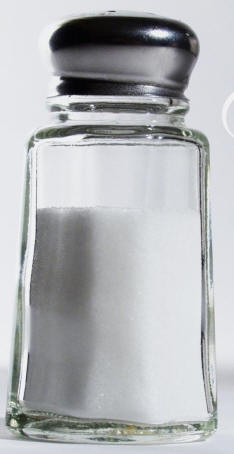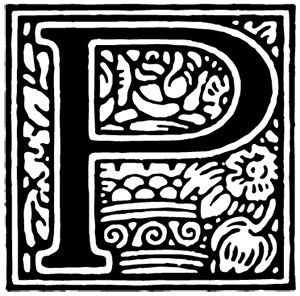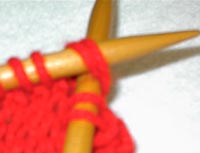
the neutral zone
vol.6 issue 2
03.07
Content
News and Updates
![]() TVMA
"NVC & Mediation" Training,
TVMA
"NVC & Mediation" Training,
April 13-14.
News from the Front
Peer Mediation in Tennessee
Blog World
Legal Language
Salt in Mediation
Mediation Toolbox
Archives
2007
February
2006
December
2005
2004
Quid Novi?
News and Updates:
CMC DATES:
March 21, Executive Committee, 12-1pm, CMC Gay St Office conference room. Brown-bag lunch, drinks provided.March 29, Board Meeting, 5:30-7:30pm, place to be announced. We will be welcoming our newest board member, Professor Becky Jacobs, UT College of Law Mediation Clinic.
Peer Mediation Advisory Committee: If you are interested in being included in the re-start of this CMC Committee, please get in touch with Jackie at jkittrell@2mediate.org or at our office, 594-1879. There is quite a bit of interest in breathing new life into our 7 year old unfunded peer mediation program for Knox County, including networking with surrounding counties. Our work with UT Athletic Department needs follow up, as well as our work with Knox County Schools.
TVMA DATES
March 20, (3rd Tuesday) Regular monthly meeting of TVMA, TVUUC, 6:30pm social time, 7-8pm, No program is scheduled but we will be holding our annual election of the board and officers. Click here for directions to the meeting. The slate presented by the TVMA Nomination Committee is:
Officers:
President Wayne Whitehead
Vice President Jean Munroe
Secretary Natalie LeVasseur
Treasurer Janet McMullen
Board Members at large:
Greg Davis
Renee Gray
Marsha Hupfel
Jackie Kittrell
Judy Toole
REGISTER EARLY & SAVE THE DATE!
April 13-14, A special treat for all mediators in Non-Violent Communication and Mediation, with two wonderful trainers, John Kinyon and Ike Lasater (an nvc attorney mediator). This training will be a 2 day training, held in the large meeting room at Tennessee Valley Unitarian Universalist Church (TVUUC). Please go to TVMA's website for registration information. This training will fill up early, so please register before the end of February to assure a place. For more about Non-Violent Communication, please check out this website.
KNOXVILLE BAR ASSOCIATION DATES
KBA ADR Section: Events will always be held at Anderson, Reeves & Herbert, P.A. - 2607 Kingston Pike, Suite 130 (Tyson Place), at 5:30-6:30pm on the first Monday of the month. They each have been approved for 1 hr CME/CLE. $15 for KBA members; $25 for nonmembers. ($5 extra the day of the event.)April 2, 2007
Mediation in Business Cases
Speaker: James S. MacDonald, Dunn, MacDonald, Coleman & ReynoldsMay 7, 2007
Mediation Insights in Employment Law Cases
Speaker: Patty K. Wheeler, Wimberly, Lawson, Seale, Wright & Daves
September 10, 2007 (Note Date Change)
Mediation of Medicare/Subrogation/Liens/Nursing Home Claims
Speaker: Harry P. Ogden, Baker, Donelson, Bearman, Caldwell & Berkowitz, P.C.
November 5, 2007 (Note date change)
Ethical Considerations in Mediation
Speaker: Howard H. Vogel, O’Neil, Parker & Williamson
*Approved for 1 hour of Ethics CLE Credit
Nashville trainings:
TBA mediation CLE/CME offerings:
Tennessee Association of Professional Mediators (TAPM)
Lipscomb University Institute for Conflict Management
April 19-21, The Advanced Mediator's Summit with Dr. Randy Lowry, Dr. Wendy Trachte-Huber, Dr. Larry Bridgesmith, Howard Vogel, and Cheryl Mason.May 24, Knowledge vs. Reason: Healthcare's Approaching Perfect Storm
June 7 & 8, June 28 & 29 and July 19 & 20.
Mediating the Complex Case, Rule 31 basic Civil training, offered in three 2-day blocks.
|
There will be a basic 12 hr. training held in
Asheville
I've taken the basic training and plan to take the advanced session.
Contact any of the trainers (via their websites--links above) to learn
more and sign up! |
![]() Tennessee Committee on
Community Mediation (TCCM)
Tennessee Committee on
Community Mediation (TCCM)
Mary Ellen runs an amazing program, serving the counties of Giles, Hickman, Lawrence, Lewis, Perry, Wayne, and Williamson. They do mostly VORP cases, but have also begun parenting mediations in Juvenile Court. Check out their website!
![]()
April 25-28, ADR In Bloom: Politics and Collaboration in the Nation's Capital, the ABA's Dispute Resolution Section's conference. Early Bird registration is done on 3/14 and hotel bookings until 4/3.
 SAVE THE DATE--MAY --FOR COMMUNITY SHARES
CIRCLE OF CHANGE AWARDS
DINNER AND SILENT AUCTION!
SAVE THE DATE--MAY --FOR COMMUNITY SHARES
CIRCLE OF CHANGE AWARDS
DINNER AND SILENT AUCTION!
|
|
"Our feelings are our most genuine paths to knowledge."
|
|
Blog World
|
Our staff email addresses:Jackie Kittrell: jkittrell@2mediate.org
Sharon Upshaw: supshaw@2mediate.org
Jen Comiskey: jcomiskey@2mediate.orgOur contact info:
912 South Gay Street
Suite L-300
Knoxville, TN 37902
(865) 594-1879, voice
(865) 594-1890, faxJuvenile Annex office
(865) 215-6570, voice
(865) 215-6564, faxWebsite: www.2mediate.org
 Legal
Language
Legal
Language
By Don K. Ferguson
(CMC volunteer mediator in Knox County General Sessions Court and author of the "Grammar Gremlins" column that appears in The Knoxville News-Sentinel every Sunday.)--------------------------------------------------------------
to wit
"To wit" is a legal archaism, an outmoded expression that is not yet obsolete. "To wit" means "that is to say." The word "namely" is almost always an improvement, according to A Dictionary of Modern Legal Usage.
 SALT
IN MEDIATION
SALT
IN MEDIATION
Talented mediators have an “optimal” level of assertiveness – that is, they
are not under- or over-assertive. According to a
recent study in the
February issue of the Journal of Personality and Social Psychology,
published by the
American Psychological Association,
leaders who are perceived as low or high in assertiveness are seen as less
effective than those who are moderately assertive. Those who are moderately
assertive have the flexibility of modifying their behavior up or down as the
situation dictates [i.e., they can “duly” influence the parties without
coercing them].
What does
salt have to do with this?
One of the researchers has described assertiveness in this way: “We say it’s
like salt in a sauce: when there’s too much or too little, it’s hard to
notice anything else, but when it’s just right, you notice the other
flavors. No one compliments a sauce for being perfectly salted, and it’s
just as unusual for a leader’s [substitute – mediator’s] perfect touch with
assertiveness to attract much notice.”
How much “salt” [substitute – assertiveness] is in your mediator toolbox?
Thanks so much to one of our favorite bloggers!
M e d i a t i o n
T o o l b o x
For those of you who haven't had a chance to review the changes wrought in Rule 31, here it is. One change: you can become a Rule 31 family mediator with an undergraduate degree IF you have 10 years experience as a mediator. You must also fulfill the other requirements.
Culturosity.com is committed to helping individuals find their resources, experiences, and opportunities that will open their minds and broaden their perspectives. We help people understand global realities and empower them to live and work effectively in a multicultural world.
Yes, its true! Another animal other than humans uses weapons to hunt and kill its dinner. Read this article about spear-wielding chimps.
Mississippi Mediation Project (MMP) was created in 2006---post-Hurricane Katrina---to empower residents of Mississippi gulf coast communities with new capacities to work collaboratively through the use of positive problem solving and effective communication skills, in an effort to diminish the conflicts which are impeding the rebuilding of homes and businesses in the region and delaying the return of displaced residents.
And Justice for Some This report is an update to And Justice for Some: Differential Treatment of Minority Youth in the Justice System. Both reports are from NCCD. From the report, these statistics:
* Black youths are detained at 4.5 times the rate of white youths.
* Black youths are more likely than their white counterparts to be charged and sentenced to custody, even when referred for the same offense.
* Although African American youth are 16% of the adolescent population in the United States, they are 38% of the almost 100,000 youth confined in local detention and state correctional systems.
* They were overrepresented in all offense categories.
32 page pdf file.
Judicial Leadership to Ensure Sound Permanency Decisions for Children in Foster Care: Practical Guidelines for Juvenile and Family Courts
Miniature Earth, a very short, wonderful film about our world's diversity.
Try to read this and then rethink your understanding of literacy!
"Mistakes are
the portals of discovery."
-- James Joyce

 Asheville
Trainings:
Asheville
Trainings:

 resolutions taxing $1.00 on cases filed in Juvenile and General Sessions Courts
in order to support community mediation programs. Knox County passed its
resolution unanimously in 2000---a very broad resolution to tax "all matters"
filed in those two courts. General Sessions Court collects the tax and
sends CMC a check each month between $2,000-3,000. On the other hand, the
resolution was never implemented in Juvenile Court, most likely because Judge
Garrett, very supportive of CMC's work, thought it would not generate much
revenue. Turns out, he was right!
resolutions taxing $1.00 on cases filed in Juvenile and General Sessions Courts
in order to support community mediation programs. Knox County passed its
resolution unanimously in 2000---a very broad resolution to tax "all matters"
filed in those two courts. General Sessions Court collects the tax and
sends CMC a check each month between $2,000-3,000. On the other hand, the
resolution was never implemented in Juvenile Court, most likely because Judge
Garrett, very supportive of CMC's work, thought it would not generate much
revenue. Turns out, he was right!




